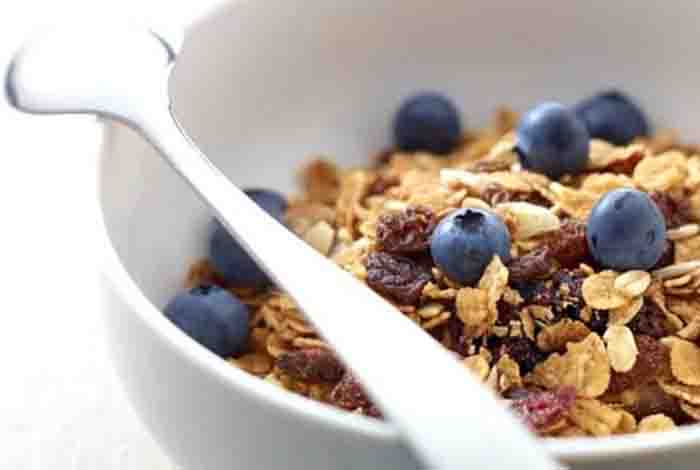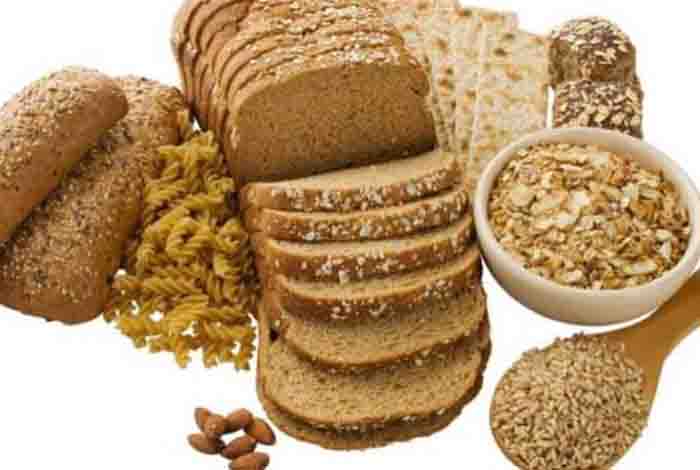
You may have seen people, who eat anything they want without gaining an ounce. Some people are blessed with high metabolic rate. Metabolism is the process through which your body converts food and drinks into energy. Basal metabolic rate is the number of calories burnt by your body during the resting phase.
If Basal Metabolic Rate (BMR) is high, it becomes easier to maintain or lose weight. According to Dr. Nancy Rahnama, bariatric physician, people can’t do much about changing their BMR, but they can follow some practices to optimize it. BMR is governed by age, genetic makeup and gender – factors that cannot be changed.
Discussed below are several strategies that can be adopted to boost metabolism:
Do Not Miss Out on Breakfast:
You must eat your breakfast daily if you want to optimize your metabolism. Dr. Nancy says that when you are hungry in the morning, your body releases stress hormone, known as cortisol. This results in the conversion of muscle to sugar, making your body lose muscle mass. When cortisol is released, insulin shoots up. Insulin gives the command to the body to store fat.
She further adds that people, who miss out on breakfast show symptoms like agitation, irritation, tiredness and lightheadedness that may be due to low sugar levels. To manage these symptoms, people choose foods high in calories and sugary stuffs like cinnamon rolls, muffins and so on. Also, they do not choose the best that is out there for lunch.
If you consume breakfast with protein and fiber, you will prevent yourself from spike in cortisol and you will be able to decide better options for yourself.

Reserve Protein and Fiber for Breakfast:
This type of breakfast is great for optimizing the metabolism. Researchers claim that when we eat breakfast, we reduce the chances of the development of nonalcoholic fatty liver disease.
According to a survey by the Center for Disease Control and Prevention (CDC), if you eat greater percentage of the day’s calories in breakfast, you cut down the chances for the development of fatty liver by around 21%. Foods having refined sugar and white flour must be avoided.
You should include whole grains like barley, oats and rye. These are good sources of fiber and protein and their rate of absorption is also slow, so these let you feel full for a longer duration. Stuffs like white bread and even a low-carb breakfast can increase your blood sugar level and add to your body weight. You can replace white flour bread with almond flour bread. Some great sources of protein are eggs, nuts, chicken and fish.

Do Strength Training:
High intensity interval training can help boost cardiometabolic health of obese and overweight people. If the cardiometabolic health is not good, you have a greater likelihood of having stroke, diabetes and heart disease.
High intensity interval training is about short periods of vigorous activity followed by periods of rest or slow-paced activity. It might involve high intensity exercises, such as push-ups or squats for half a minute to one. This is followed by less vigorous exercise for 1 to 2 minutes. You can continue doing this for 20 minutes. This type of activity enhances the functioning of mitochondria – a cell organelle responsible for energy generation. Enhancing mitochondrial mass can help optimize metabolism.
When you do strength training along with high intensity interval training, you increase the function of mitochondria and more mitochondria is formed. It is said that strength training helps form more mitochondria as well as burning of oxygen and calories.

Eat Mindfully:
Research suggests that when you eat mindfully, i.e., consume food when you are hungry rather than out of habit as well as chew food slowly, savoring and relishing each bite; you create positive metabolic effects.
A study indicates that mindful eating can lead to long-term improvement in relation to metabolic health. In this study, the participants, who were part of an exercise and diet program that involved mindfulness training had less likelihood of metabolic risk factors as compared to their counterparts, who were not instructed.
Metabolic risk factors include increase in the levels of blood sugar, low levels of high-density lipoprotein (HDL) or good cholesterol, increase in blood pressure and large waist circumference. Mindful eating implies being present with all the senses while eating and also before and after eating.
With this, you are in a position to make better and healthier choices of food. You are also more careful about what and how you eat. Choosing healthier foods that result in having a healthy and fit body is a good consequence of mindful eating.

Exercise at the Right Time:
When you exercise regularly, you prevent yourself from losing muscle mass, which ultimately slows down your metabolism. Regular physical activity is necessary to maintain muscle mass.
If you are in a job, which requires you to invest 9 hours and sometimes even stretch, then you remain loaded with work all the time and very tired by the end of the day. Morning or afternoon workouts are better as working out at night may make it difficult for you to get a good night sleep. This is because exercise releases adrenaline hormone, which increases blood flow to the muscles while making you mentally more alert.
Some people can stay awake through the night and this effect does not show up in every individual. The most appropriate time of the day when you should work out is when you can be most consistent. You should work out at a time that is best for you and your body and that does not obstruct your sleep. Everyone’s preferences are different. If you are more consistent in exercising with a partner, then you can have your way without being bothered about the time of the day.

Eat Whole Grain Foods:
According to a study, consuming bread made out of whole grains instead of white flour may have positive effect on resting metabolic rate – the rate at which calories burn while the body is in the resting phase.
Boosting metabolism is a tough job, but healthy amounts of dietary fiber can be helpful. A study was conducted in which it was found that people, who consumed whole grain diet that matched the dietary fiber intake, lost around 100 calories in a day due to increase in metabolic rate and more fecal loss.
The daily fiber intake as recommended for adults above the age of 50 is 25 gm for women and 38 gm for men. The fiber intake recommended for adults above the age of 50 is 30 gm for men and 21 gm for women.

Consume a Post-Workout Snack:
If you exercise at night, you can have a nutrient-rich snack. This will boost the metabolism. A study was conducted in which researchers examined around 16 males, who had a high protein shake after doing 45 minutes of resistance training. The participants of the study had the drink half an hour before going to bed. The results of the study indicated that people, who had the shake, showed improved muscle protein synthesis, satiety and morning metabolism. However, this study has not been conducted with regard to healthy females.
Eating before sleep is of concern only when you are eating too much and have bad food choices. Data also suggests that if you eat foods rich in protein and low in calories, you will be able to improve muscle recovery and metabolism. Also, there is no negative impact on mobilizing ability and burning fat.

Get a Good Quality Sleep:
According to researches, lack of good sleep can increase inflammation, obstruct the function of the cells, and increase the risk of heart disease. It also disrupts the functioning and development of mitochondria.
When you sleep well, the mitochondrial function improves, and metabolism gets optimized. At least 7-9 hours of sleep is sufficient for each night. When you get poor sleep, your metabolic rate gets reduced. This can further change the thyroid hormone functioning, which may result in weight gain, obesity and increase in insulin resistance.
It is a good practice to go to sleep one hour earlier than the usual time as it will help you in promoting better sleeping habits for a better metabolism.











